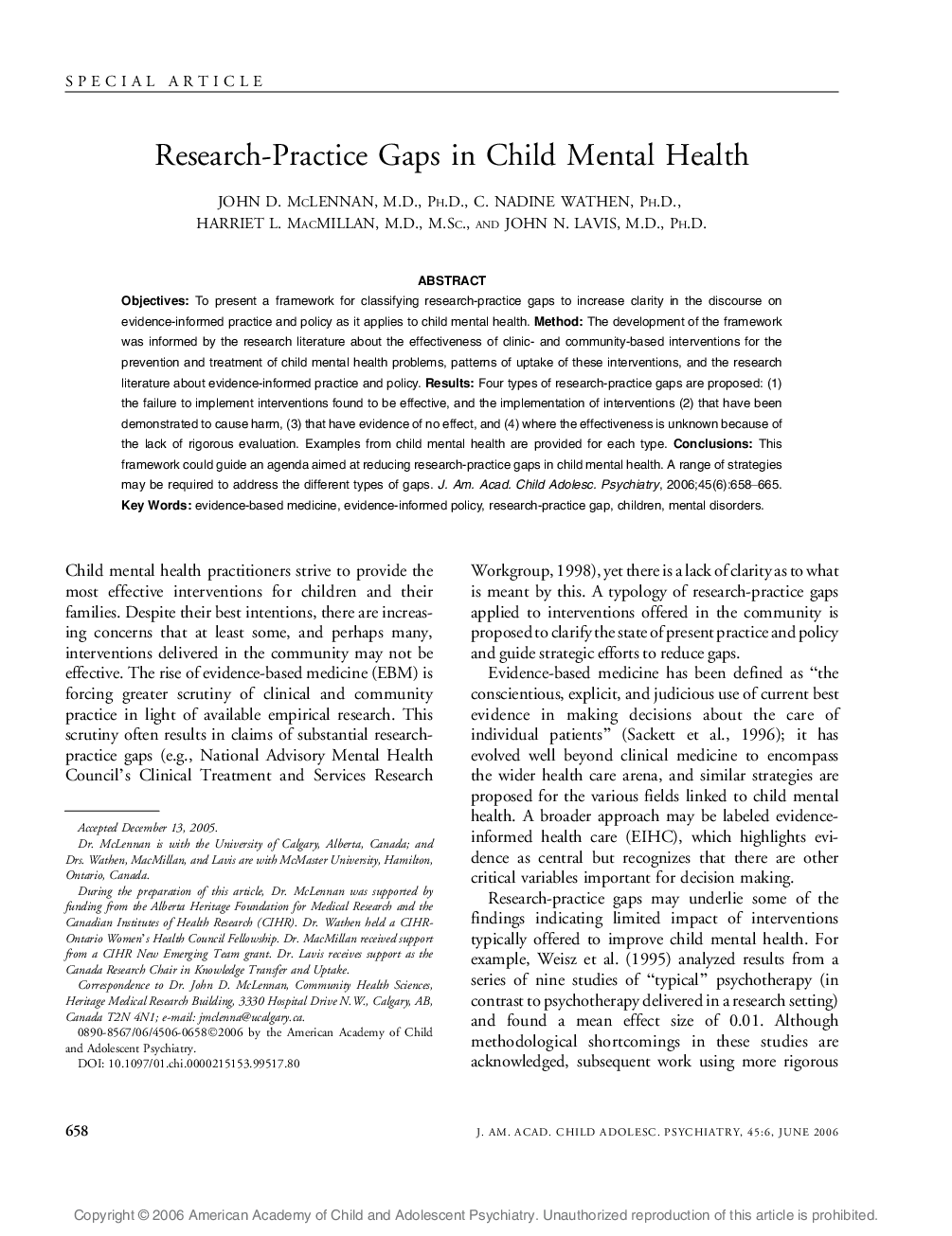| Article ID | Journal | Published Year | Pages | File Type |
|---|---|---|---|---|
| 325070 | Journal of the American Academy of Child & Adolescent Psychiatry | 2006 | 8 Pages |
ABSTRACTObjectivesTo present a framework for classifying research-practice gaps to increase clarity in the discourse on evidence-informed practice and policy as it applies to child mental health.MethodThe development of the framework was informed by the research literature about the effectiveness of clinic- and community-based interventions for the prevention and treatment of child mental health problems, patterns of uptake of these interventions, and the research literature about evidence-informed practice and policy.ResultsFour types of research-practice gaps are proposed: (1) the failure to implement interventions found to be effective, and the implementation of interventions (2) that have been demonstrated to cause harm, (3) that have evidence of no effect, and (4) where the effectiveness is unknown because of the lack of rigorous evaluation. Examples from child mental health are provided for each type.ConclusionsThis framework could guide an agenda aimed at reducing research-practice gaps in child mental health. A range of strategies may be required to address the different types of gaps.
